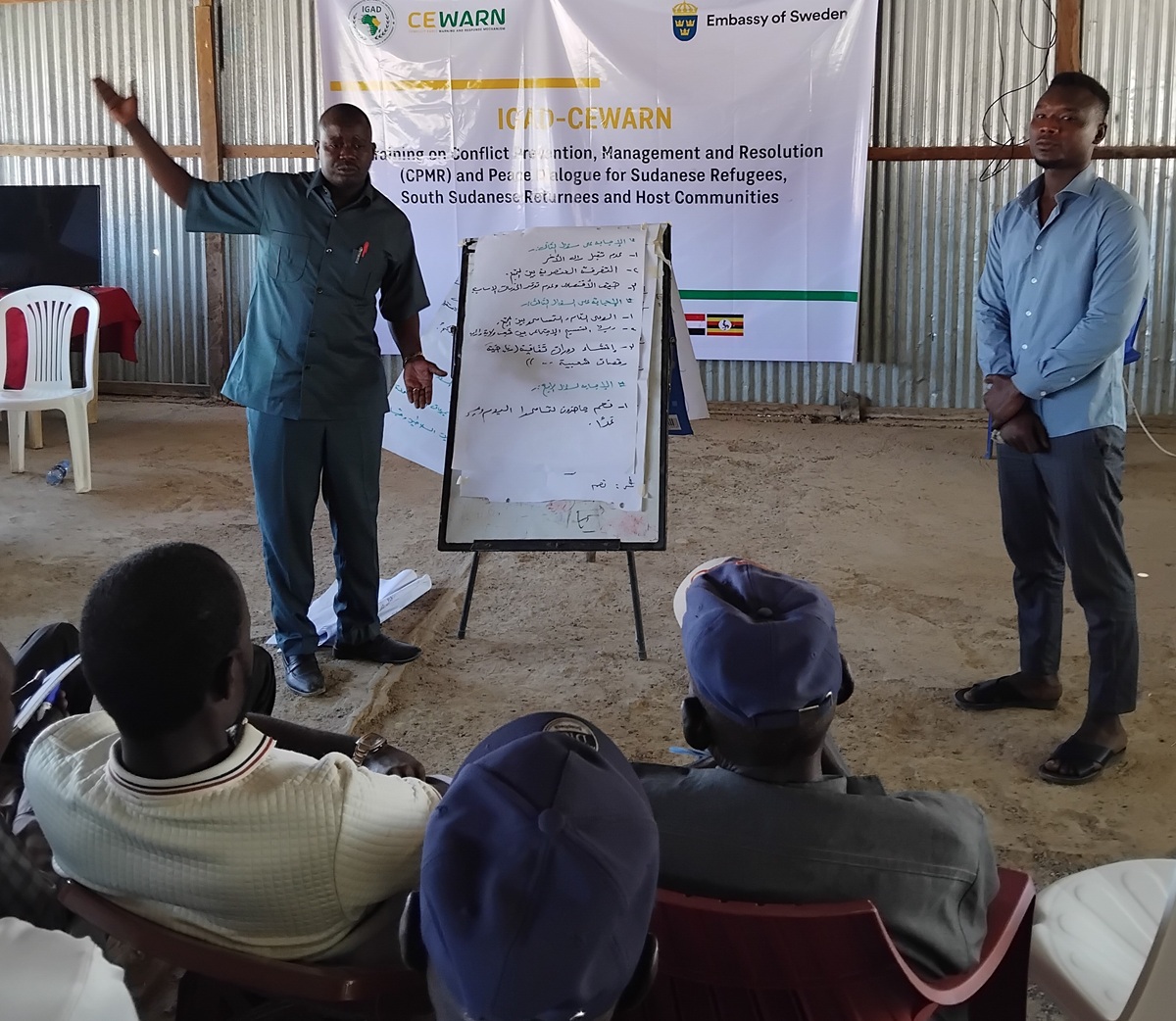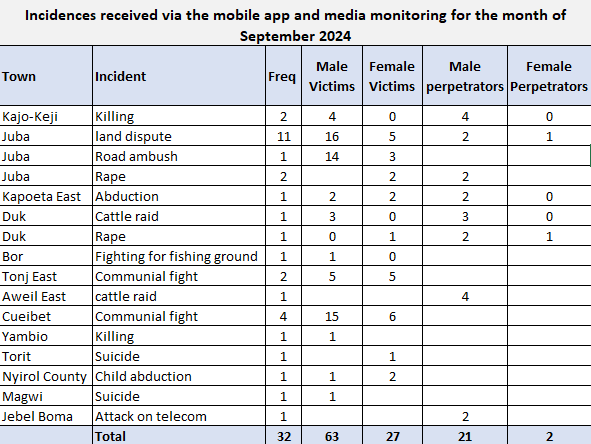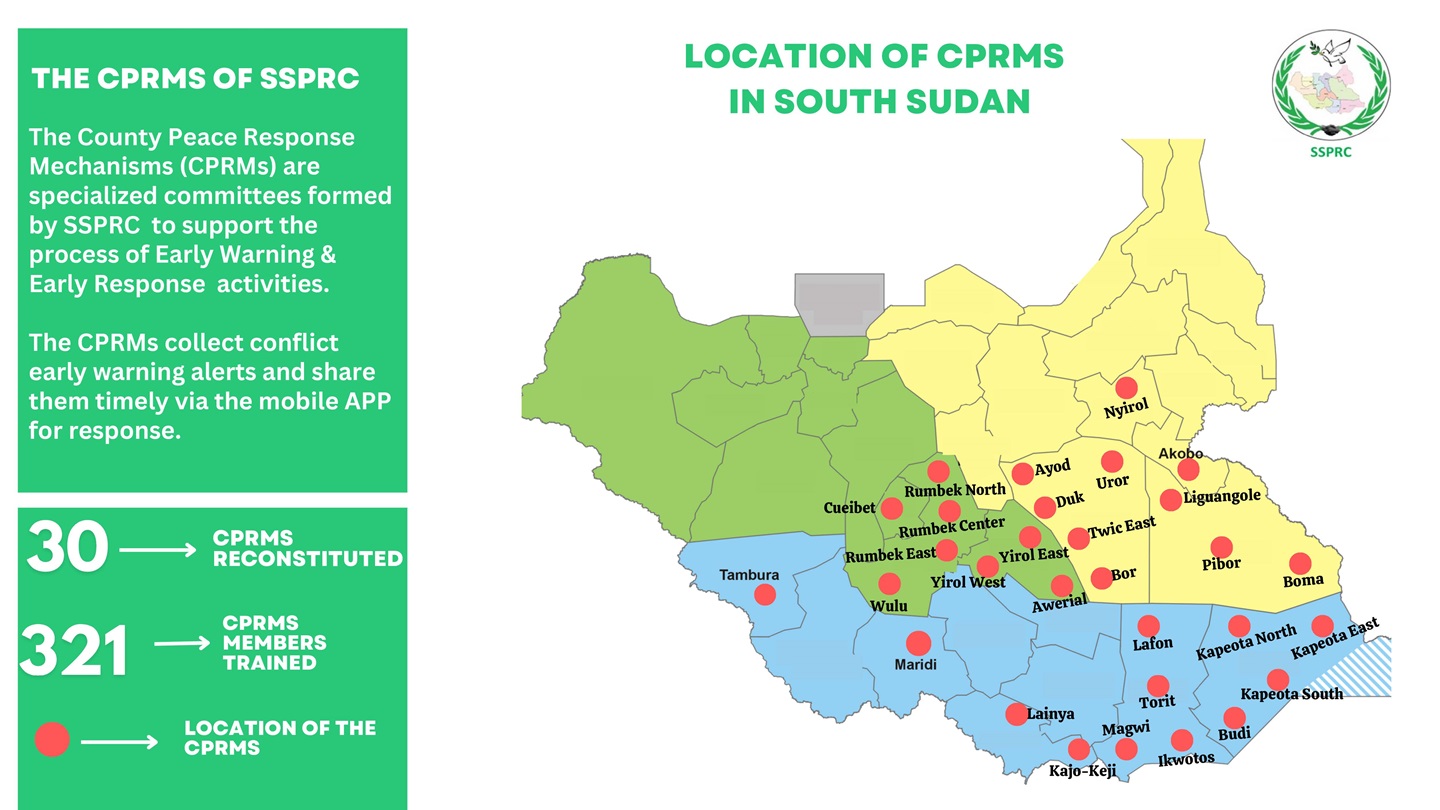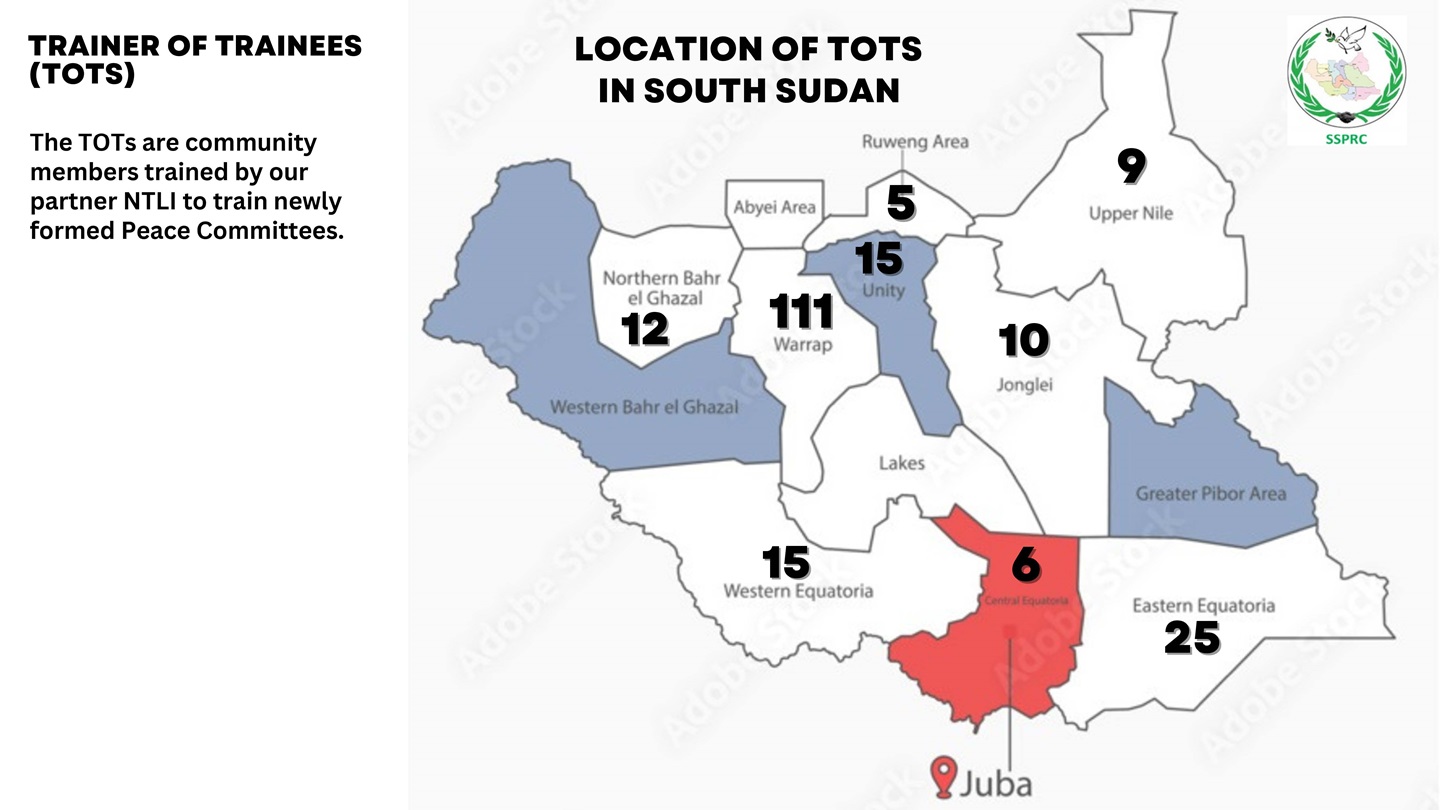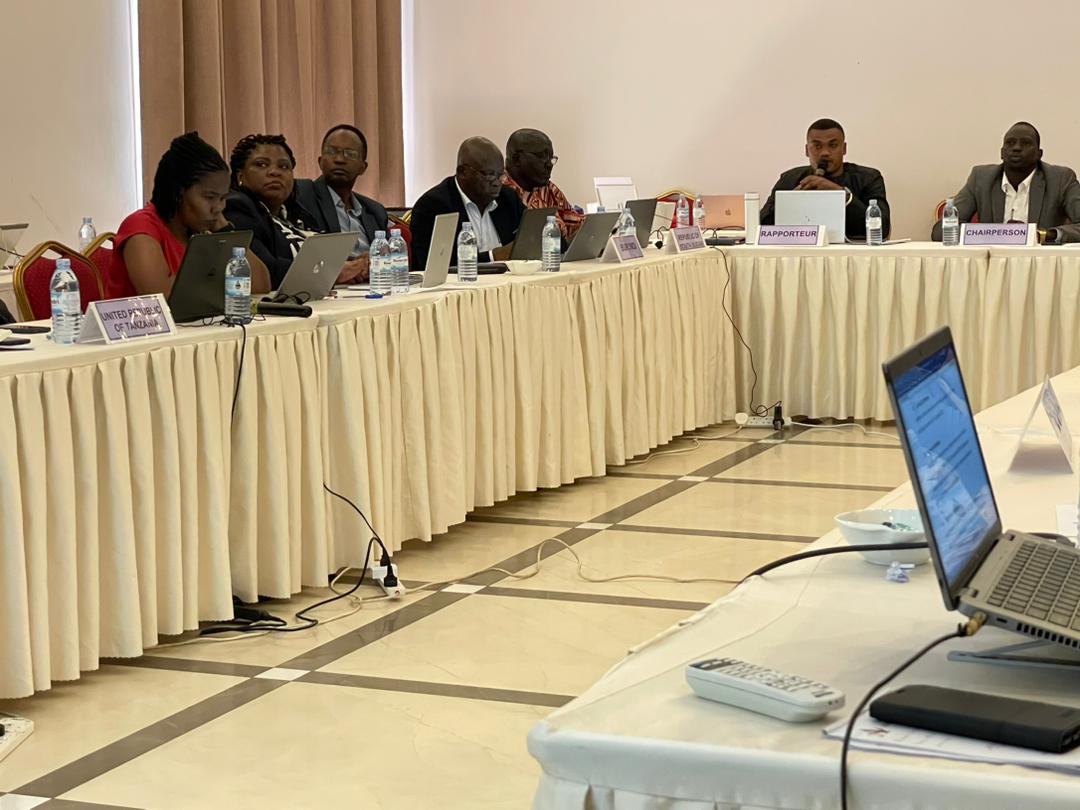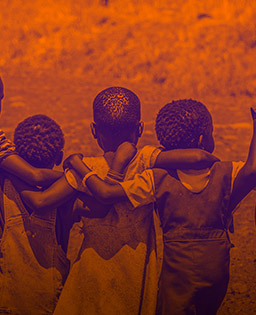Strengthening Conflict Early Warning and Early Response Mechanisms in Warrap and Western Bahr el Ghazal States: Training and establishment of STT in Wau & Kuajok
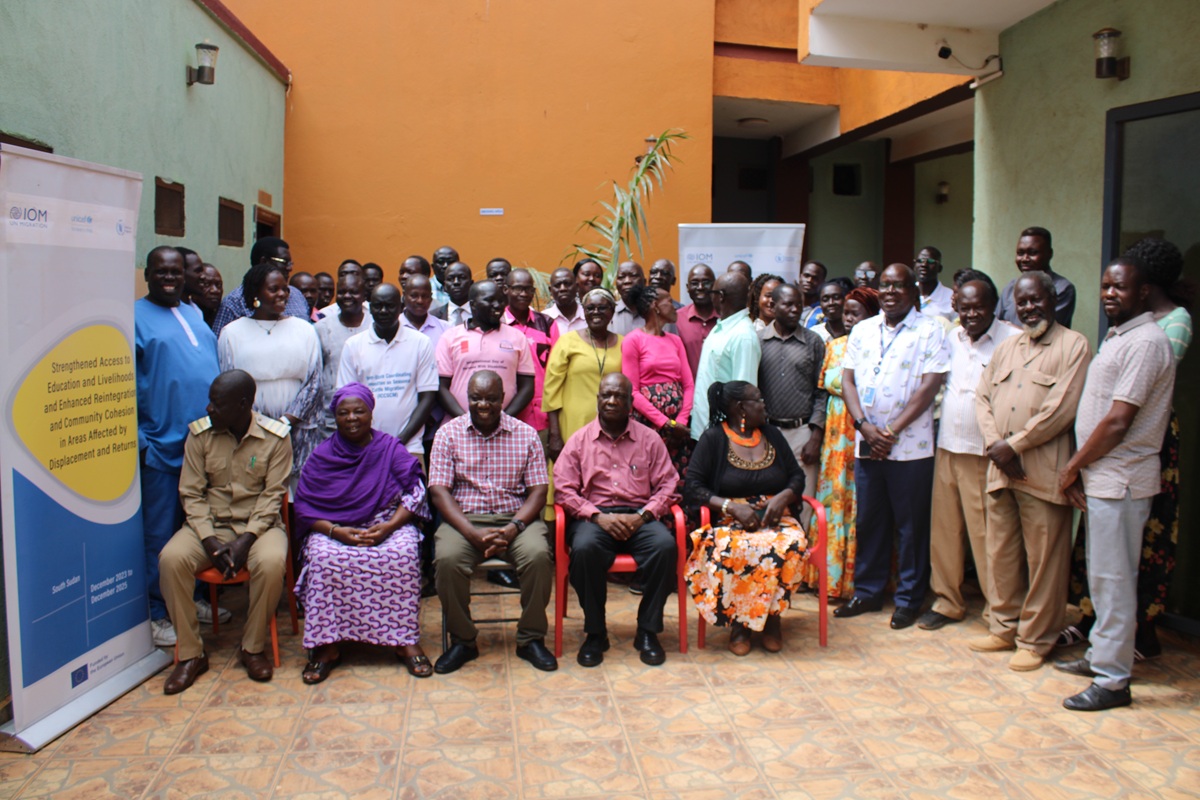
Like many other states in South Sudan, Warrap and Western Bahr el Ghazal have faced persistent challenges including revenge killings, hate speech, cattle raiding, child abduction, gender-based violence (GBV), and politically motivated conflicts. While the South Sudan Peace and Reconciliation Commission (SSPRC), with support from UNDP, successfully established early warning mechanisms in five states: Western Equatoria, Eastern Equatoria, Jonglei, Central Equatoria, Lakes, and the Greater Pibor Administrative Area. Warrap and Western Bahr el Ghazal had remained without such systems. As a result, areas like Jur River, Greater Tonj, and Twic have become conflict hotspots.
In November 2024, SSPRC, supported by IOM South Sudan, conducted an assessment on conflict early warning and early response in Wau and Kuajok. The assessment strongly recommended the establishment of conflict early warning and response mechanisms in both locations.
From 7–11 April 2025, an SSPRC team, again with support from IOM South Sudan, established a State Technical Team (STT) in Wau. The STT serves as a conflict early warning and early response mechanism, responsible for collecting and analyzing conflict data and generating response options to address emerging issues before they escalate into violence.
The STT underwent a four-day training on data collection and analysis, conflict mediation and management, and the use of the AlertMe mobile application for timely conflict alerts and early response coordination. The team is a carefully selected group of individuals from various sectors with responsibilities in their communities to help address emerging conflicts swiftly. Its composition includes representatives from the SSPDF, police, national security, local government, civil society organizations (CSOs), youth and women’s groups, persons with disabilities, faith-based organizations, and academia.
A similar mechanism was established and trained in Kuajok from 14–18 April 2025

Voices from the Training
Awien Maror, Youth Union Representative Warrap State.
"This system will enable women to raise their voices and participate in peacebuilding. When a woman speaks to her peers, they listen. I urge authorities and partners to ensure women, especially mothers, are included in all forms of dialogue. When mothers engage with their children, they listen, and this can influence positive change in Warrap State."
Kornelio Abel Ochira, SSPDF Division 4 Commander
"I have gained a lot from this training. Even in the Bible, soldiers were always present to restore order in times of chaos. To those trained here today, I humbly ask you to go back to your communities and tell them the army is not their enemy, we are their friends. Let the community respect us, and let us respect our leaders, regardless of their age, because we respect the title for the sake of revitalization.
Reflections from State Leaders
Ann Daniel Ann, Director General, Ministry of Peacebuilding, Western Bahr el Ghazal State
"In 2016, the Relief and Rehabilitation Commission (RRC) from Juba formed a similar mechanism here, but it did not function well due to changes in government and lack of clear structure. We are hopeful this new mechanism will succeed because of its solid foundation. We commit to working together to ensure its success in WBG State."
Minister of Cabinet Affairs, Warrap State
"One of our biggest challenges has been failing to detect problems early. This mechanism is crucial, and I hope you provide us with credible information. In Dinka culture, sometimes someone who tells lies is praised later but this will not be accepted in this mechanism. We also ask you to remain neutral. Do not take sides, you are peacemakers, and a peacemaker knows no friend or community. Finally, I assure you this committee will be protected."
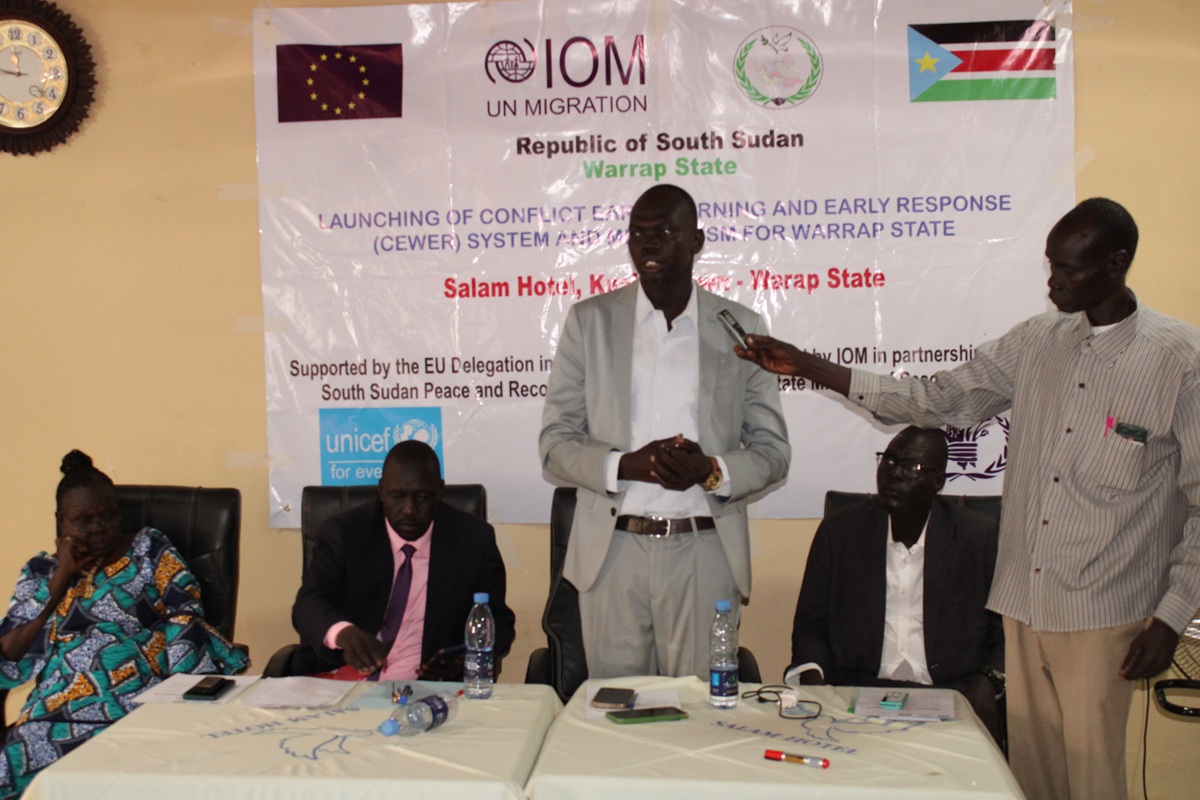
The Governor expressed profound gratitude to SSPRC and IOM for launching the Conflict Early Warning and Early Response Mechanism (CEWER) in his state. He recognized the timeliness of this initiative during his tenure and pledged to work closely with all partners to implement the mechanism, reduce intercommunal conflicts, and improve security in Western Bahr el Ghazal and neighboring Warrap. As custodian of CEWER, he assured full support for achieving its objectives, noting that his office remains open to collaboration. He emphasized the importance of engaging youth, who are both a source of conflict and pillars of development and committed to working with all stakeholders, especially the security sector, to address insecurity in the state

